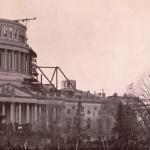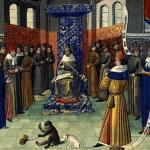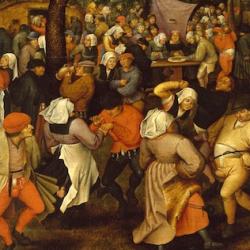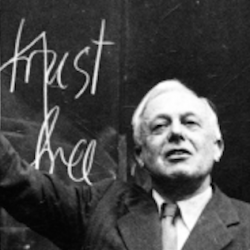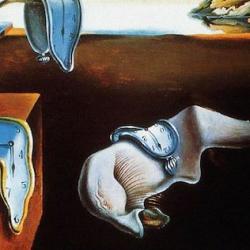In what Rosenstock-Huessy calls “the dead universe” of nature, “time gallops ‘like water, flung from cliff to cliff’ and is never present” (In the Cross of Reality, 250).
This means that “we get to know time only when we leave external space behind us. When a wall stands between us and the dead, the present vaults above our heads in a span from past to future. Present is what we call the instant of time when a past and future intersect and dissolve into one another.” In nature, there is no present. Rosenstock accuses Laplace of idolatry for suggesting that nature has a present: “His kind of natural scientists are all idolaters” (250).
This knife-edge present between the past and future isn’t human time: “No man is therefore ever in the present, except in association with others who can indicate to him the past and future and the work to be done in the present. Elders and youngsters, the dead and future men are, for man, preconditions for saying ‘now'” (250).
“Time and space” is “an invention of philosophers,” a “heresy,” and one that “contradicts experience.” We don’t confront a reality of time and space but form times and spaces in speech:
“Human speech is the system of coordinates with which we constantly disjoin spaces and times: We make them polar opposites and then distribute ourselves among them. To speak means to strike across spaces and times ourselves” (250).
In short, “all times and all spaces are fruits of social reciprocity.” We make times by saying “Once there was Europe” or “Europe will come again.” We form spaces by distinguishing between what the “French” love and what “Russians” love. It’s a philosophical illusion to think we can get beyond speech to “real” time and space, for these are the product of speech.

